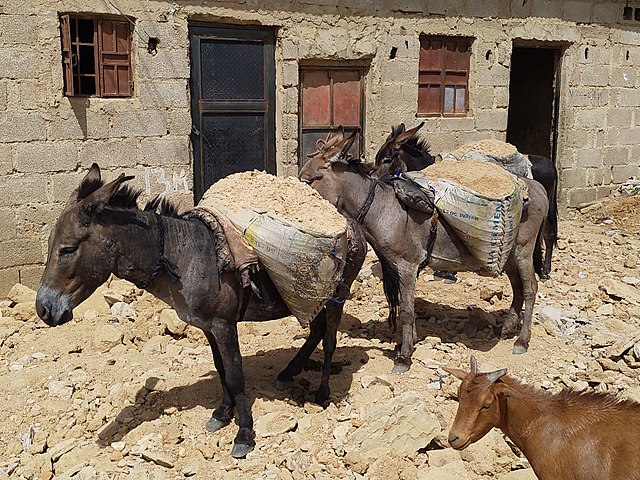The action took place in the town of Bagudo near the border with Niger and Benin.
The skins, piled in a mound of carefully arranged sacks, were spotted on the riverbank, awaiting a boat which was to take them out of Nigeria. Their destination was not immediately clear.
“If this is allowed to continue, donkeys will soon go into extinction,” commented Attah.
The global trade in donkey skins has been driven by demand in China, where they are used as an ingredient in Ejiao, a traditional Chinese remedy.
In the production of Ejiao, donkey skins are boiled to release gelatin and then mixed with different herbs into an extract which is meant to improve sexual prowess and slow down ageing.
Donkey Sanctuary, an animal welfare charity, estimates that around 4.8 million donkeys are slaughtered each year to service that market.
The skins are often sourced from donkeys stolen on farms, which poses a major challenge to farming communities, dependent on donkeys for transport and agriculture.
A report by Donkey Sanctuary from last month emphasized the cruelty typically accompanying the process. “Donkeys are stolen from their owners during the night and are ruthlessly slaughtered before their skins are removed and the carcasses left to rot,” it says.
Nigeria banned donkey slaughter and exportation in 2019 in an effort to address a rapid fall in its donkey population. Perpetrators face a 10-year prison sentence.
Africa, hosting a large proportion of the world’s donkey population, has been impacted severely by the trade.
Some countries, including South Sudan, Uganda, Senegal, Botswana, Sudan, Niger and Ethiopia banned donkey slaughter or exports. Earlier this month, they were joined by Tanzania.
Elsewhere, however, the donkey skin trade continues to be seen as an economic opportunity.

